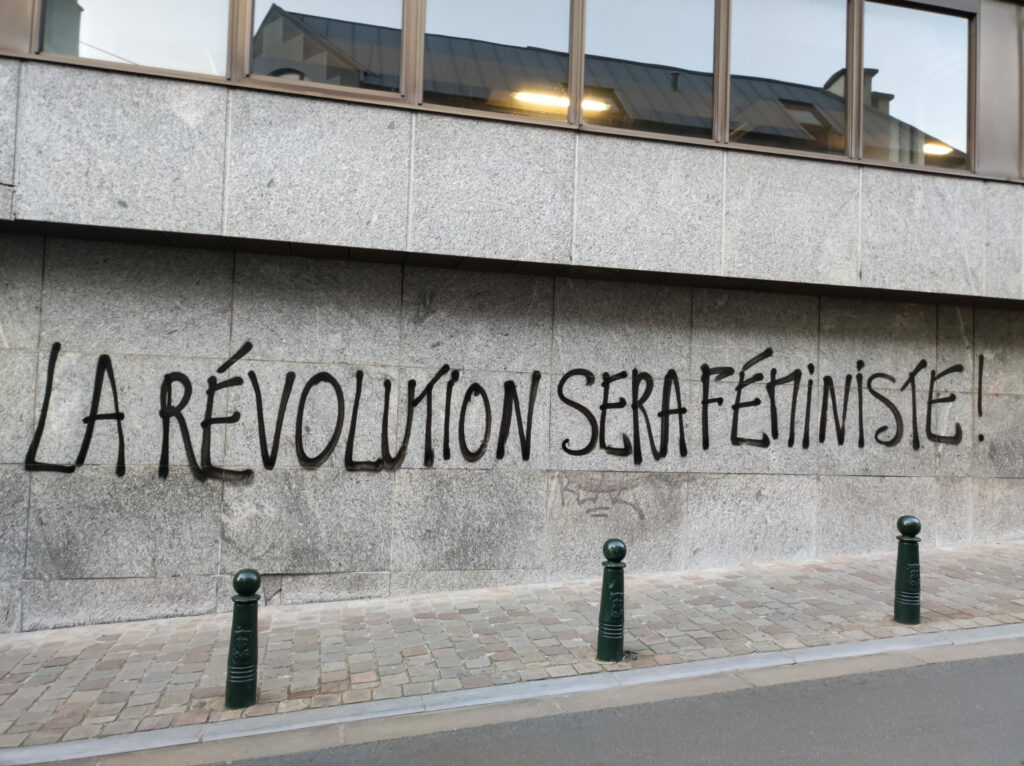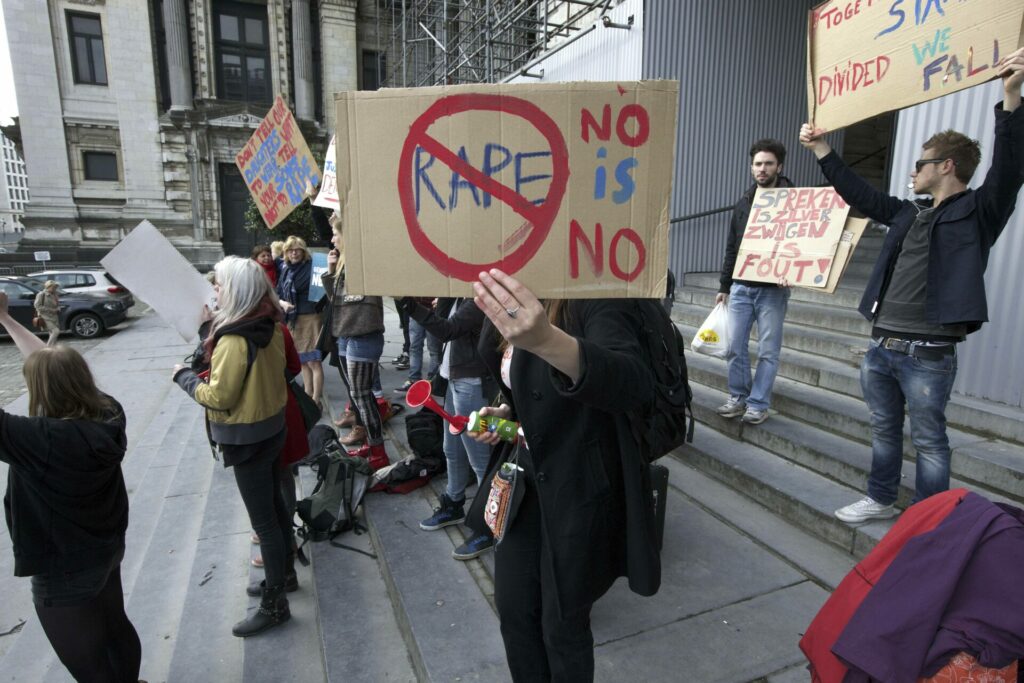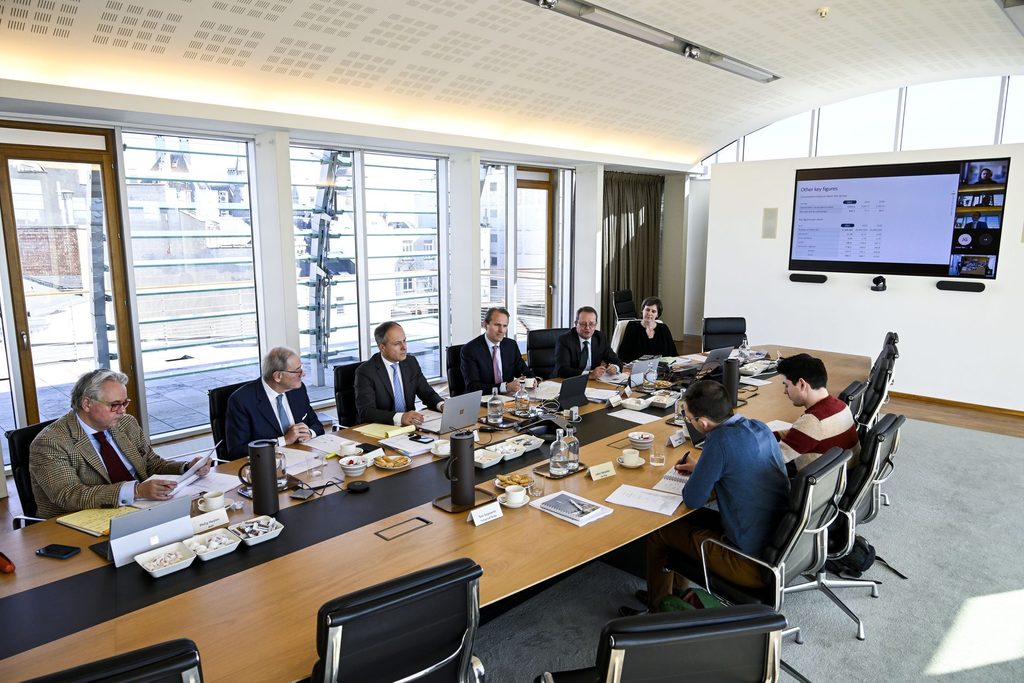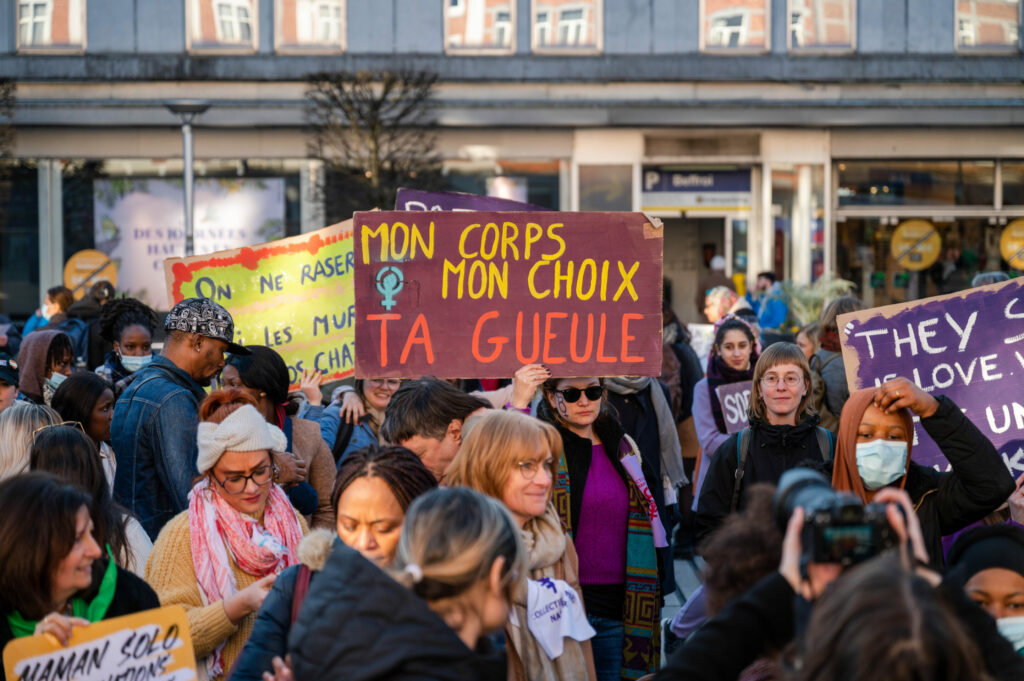Belgium is often named among the countries that make strides in gender equality. And while the country has made major progress for women's rights – and is even taking the lead in some cases – there is still quite some work to be done.
Every year, International Women's Day (8 March) sees people mobilise to highlight the gender-based discrimination women face daily, including in Belgium. From gender-based violence and discrimination to the wage gap and who is making the important decisions, the country still has a long way to go.
"Belgium has an international reputation as a defender of gender equality and women's rights," the Institute for the Equality for Women and Men (IGVM) said in a memorandum published in February.
"Belgium is assuming an important position in various European and international forums and can take action in this context to promote gender equality and combat gender-based violence," the institute added. "This position is all the more important in a world where conservative tendencies and anti-gender movements are increasing."
What do the figures say?
Belgium ranks tenth of 146 in the world for gender equality, according to the latest World Economic Forum (WEF) Gender Gap Report 2023 – four places up from the year before.
The WEF analysed 146 countries on four main criteria (economic participation, educational attainment, health and political empowerment) and gave Belgium a score of 79.6%. (A score of 100% would represent full equality between men and women.)
Within the EU, Belgium ranks fifth on the Gender Equality Index with 76.0 out of 100 points – scoring 5.8 points above the EU average, according to the latest annual figures by the European Institute for Gender Equality.

"The revolution will be feminist." Credit: Belga / Angele Oliver
These rankings are mainly based on the traditional axes of gender equality policy: discrimination, gender-based violence, gender and the labour market, gender mainstreaming (a systematic approach as part of all federal policies) and healthcare.
Discrimination
Belgium has taken major steps in protecting people against gender-based discrimination, such as better protection of workers against discrimination concerning their family responsibilities (which often fall on women), the recognition of multiple discrimination, and making distributing messages with a sexual connotation without consent a punishable offence.
"Still, there is much work to be done to strengthen the fight against discrimination. Sexist behaviour is still evident in every aspect of daily life, especially that of women," stressed the IGVM. This week, Flemish Justice Minister Zuhal Demir even announced that she filed a complaint after receiving an unsolicited photo of male genitalia.
As the legal framework against discrimination and the expansion of the protected criteria has been strengthened, the number of reports of discrimination also increases every year – which in turn leads to an increased need for victim support.
Gender-based violence
From femicide and rape to sexual misconduct and online sexual harassment, gender-based violence takes many forms. Since 2001, all policy levels in Belgium have been working together to fight gender-based violence and achieve equality for all, regardless of sex or gender.
"Last year, we voted on the Stop Feminicide Act – a unique law in Europe that initiates numerous measures to prevent and combat violence as much as possible," Inge Jooris, a spokesperson for Belgium's State Secretary for Gender Equality Marie-Colline Leroy, told The Brussels Times. "Thanks to this law, Belgium is a frontrunner in Europe."
The mobile stalking alarm is being rolled out across the country so women can discreetly call the police if they feel threatened by their ex-partners, for example. Emergency workers, magistrates and police officers are also being trained to recognise all forms of violence, and the various measures will be streamlined and better data will be provided.
Still, about 4,000 rapes are reported to the police in Belgium every year – a number which experts stressed is an underestimation, as many cases of rape or sexual assault are not reported at all.

Credit: Belga / Nicolas Maeterlinck
As part of the fight against sexual violence, Belgium has also opened a number of sexual violence care centres, where victims can receive medical and psychosocial help, 24 hours a day, seven days a week, and file a complaint.
Belgium also reformed its Penal Code and made consent the basic principle: the new law determines whether an offence was committed based on whether there was consent for the act. Previously, this was inferred from the victim's "lack of resistance," Jooris added.
These initiatives strengthen the country's National Action Plan to combat gender-based violence, which was adopted by all of Belgium's governments in November 2021. With more than 200 cross-measures, it unites all governments around a single goal: to step up the fight against gender-based violence through prevention, protection and prosecution measures.
Healthcare
Healthcare is a strategic priority that has come to the fore under the current Federal Government, without which "it is difficult to fully participate in society," it says.
Yet, there are still many gender inequalities found in Belgium's healthcare system. Differences between genders, including situations that affect only one of them, are still too often overlooked, for example in scientific research, when testing new medicines and in the preparation and administration of medical care.
"This harms an individual's quality of life and their ability to play an active role in society," the IGVM said. "Special attention is also needed to guarantee sexual and reproductive rights, improve mental health and apply gender-sensitive medicine."

Credit: Pexels
Access to sexual and reproductive health and rights, including contraception and abortion, must be improved. While France recently became the first country to enshrine the right to an abortion to its national constitution, discussions in Belgium about a possible extension of the abortion deadline (from 12 to 18 weeks) have stagnated since 2019.
Additionally, more information is required to identify and resolve the needs and inequalities caused by menstruation (from period poverty to endometriosis and menstrual leave) and menopause.
Gender and the labour market
The Belgian labour market and economy currently still show many gender inequalities: the wage and pension gap, women working part-time (even though Belgian women are leading the way in the switch to full-time employment) and an under-representation of women in managerial positions.
There is also horizontal segregation, unequal distribution of (unpaid) household and care tasks, birth leave differences and many more issues. These inequalities lead to an increased risk of poverty for women, especially women with a migrant background, older women and women heading single-parent families.
"The transposition of the directive on work-life balance will mean major progress for women's careers and a fairer division of family responsibilities between men and women," said Jooris. "The aim is to increase women's participation in the labour market and reduce the differences in career, salary and pension between men and women."

Credit: Belga / Tom Goyvaerts
For the IGVM, greater gender equality in the labour market, and within the economy in general, is necessary so that women can achieve greater economic independence and so that work can be a driver of emancipation for all. More equality in employment must be achieved in a structural manner, using a specialised approach per sector.
Just as was decided in France, State Secretary Leroy wants quotas for management committees in Belgium. "Only 16% of the Bel20 board members are women. Since the introduction of the quota law in 2011, the share of women on boards of directors has increased from 8% in 2008 to more than 33%. Quotas work and without them, we lose time."
Gender mainstreaming
Belgium's Prime Minister Alexander De Croo has long been a champion of gender equality, and his government has been making efforts to include gender in many of its policies. In 2018, he wrote a book called 'The Age of Women. Why Feminism also Liberates Men', in which he made a plea for more women in leadership positions.
When assigning ministerial positions in his Federal Government, the gender balance was an important factor. In 2020, when the cabinet was sworn in, De Croo ensured that there were ten male and ten female members – making it the first time in Belgium that the government had such a high percentage of women.
Even though many ministers have been replaced over the past four years, the gender balance was always respected. What's more, since Nicole de Moor took over from Sammy Mahdi as State Secretary for Asylum and Migration, there are now more women than men (11:9) leading the country.
However, the core cabinet (comprising the Prime Minister and the seven Deputy Prime Ministers) is still predominantly male, with Petra De Sutter being the only woman in the eight-person group. This means that, in practice, the most important decisions continue to be made by men in Belgium.

